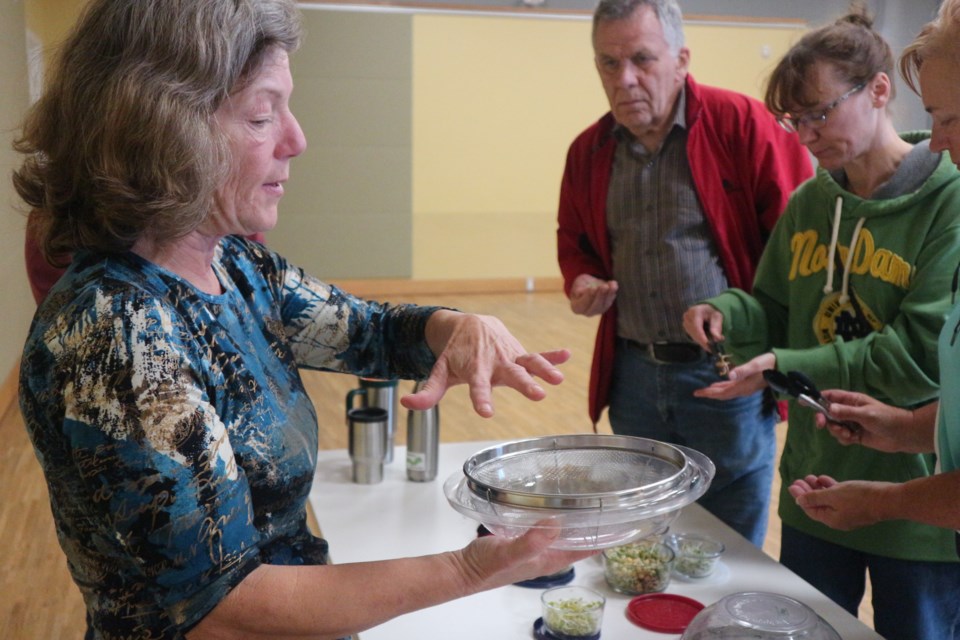On Saturday morning, Cathy Nesbitt held a free workshop at the BWG Library on how and why to grow sprouts.
“The practice of sprouting is just taking a seed or bean and germinating it, so just starting the process of it growing,” explained Nesbitt.
“People ask me why I have so much energy, it’s because I’ve been eating bio-genic food for 17 years,” she told the group.
At the start of the workshop, she read a quote by renowned Irish physician, Sir Robert McCarrison:
“The right kind of food is the most important single factor in the promotion of health, and the wrong kind of food is the most important single factor in the promotion of disease.”
McCarrison believed good food leads to good health, “which doesn’t seem like rocket science,” explained Nesbitt, “but today our food is broken.”
“It’s very broken, and we don’t even know what’s real…” she explained about the way food is marketed to society today.
Originally just a worm farmer, Nesbitt became involved with sprouting in 2002 after meeting sprouting extraordinaire, Tony Hornick. Hornick had been passionate about the process of sprouting for his health, which inspired Nesbitt to give it a try. Today, Nesbitt still farms worms as well as sprouts for a living, with her husband, Rick.
Sprouts are nutritious and provide plenty of vitamins, protein and fibre.
Nesbitt explained how the process of growing sprouts and beans is fairly easy, with various ways to do so, including planting in jars and paper towels. “It’s really just getting that seed to open up,” she said.
Spouting in a jar, she says is a fine way to sprout, but offers a tip that only very few seeds are needed to yield a good batch. Sprouts can be eaten raw or cooked, on their own or added as a topping to any meal.
Nesbitt admitted to even adding some to her ice cream once in a while.
Sprouting, Nesbitt says, is an easy, inexpensive way to add nutrients to your life in a natural way.
“Now that we’re coming into winter, you can have your fresh greens, and you can still get your delicious nutrients that you can make yourself,” she said.
Beans and lentils are good for us, she explained. However, most of a coating on them, phytic acid, that protects the seed or bean.
“It’s that phytic acid that’s a challenge for our bodies,” explained Nesbitt.
We are usually advised when we cook beans to soak them first, overnight. “And the soaking process will remove that phytic acid,” she explained.
She advised that certified organic seeds and beans are best to use when sprouting.
Nesbitt sources her beans and seeds from various suppliers. Some of the seeds and beans she plants regularly include, chickpeas, alfalfa, fenugreek, and mung beans.
“When you grow your own sprouts, you’re in charge of the freshness,” she said.
Nesbitt brought her own sprouts for the group to sample for themselves, including alfalfa sprouts, chick peas and mung beans.“It’s amazing, a pound of beans will turn into eight pounds of food, this can help a lot of people who don’t have access to nutritious food,” she said.
To learn more about Nesbitt and her sprouting, check out her website here.



